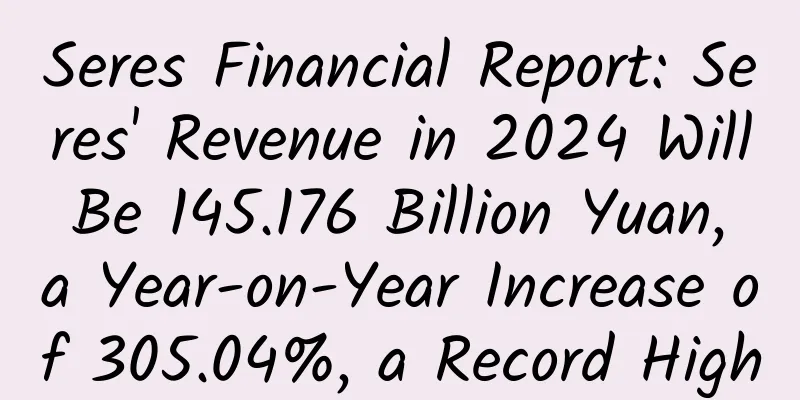It’s endless. Seven more of its models were found to be involved in fraud. It’s time for Akio Toyoda to bow down again.

|
This is an era where boomerangs are flying everywhere. Three years ago, Toyota was still promoting its "craftsmanship" everywhere, but now Toyota is mired in a fraud scandal and has become a "craftsman". On July 31, Toyota Motor said it had received a rectification order from the Ministry of Land, Infrastructure, Transport and Tourism of Japan because seven of its models had "type designation" certification violations, bringing the number of Toyota vehicles that violated the regulations to 14. Among the seven newly added vehicles involved in the incident, one is very familiar to Chinese consumers: Toyota RAV4 Rongfang. Other models included are Toyota Harrier, Toyota Noah, Lexus LM minicar, Toyota Prius and other models. Toyota was asked to submit the remedial measures it plans to take within one month. Toyota said in a statement that the company's senior leaders were not sufficiently involved in the vehicle certification process and that a better data management structure would be implemented in the future. Toyota's scandal dates back to the end of 2023. On December 20, 2023, Japan's Asahi Shimbun reported that most of Daihatsu Motor's models in production had data falsification problems, mainly violating the test procedures and methods prescribed by regulations in collision tests. The number of illegal models was as high as 64, and the number of violations was as high as 174. Daihatsu Motor, a subsidiary of Toyota Motor, had a global production of approximately 1.7 million vehicles in 2022, accounting for approximately 30% of the Japanese small car market and has a relatively high industry position. Immediately afterwards, Toyota Industries, a subsidiary of Toyota, revealed in January 2024 that there was fraud in the diesel engine certification process involving engine models. A total of 10 models were affected, including the famous Prado and Land Cruiser. Of course, Toyota's subsidiaries are not the only ones to have data fraud problems. In August 2022, Toyota's Hino Motors was involved in a data fraud scandal involving falsification of exhaust emissions data, fuel consumption data, etc. The earliest fraud could be traced back to 2003. Toyota is the representative of Japan's automobile industry. Its subsidiaries have been frequently caught committing fraud, which has made the relevant Japanese authorities uneasy. In January 2024, the Ministry of Land, Infrastructure, Transport and Tourism of Japan instructed 85 manufacturers to conduct internal investigations and submit reports, in an effort to conduct a "comprehensive survey" of data falsification by Japanese manufacturers. As of the end of May 2024, a total of 68 automakers have completed the investigation, among which Toyota, Honda, Mazda, Yamaha, Suzuki and other well-known automakers have all been involved in fraud scandals. Toyota Motor announced on June 3 that it admitted that 7 models violated Japan's "type designation system", with a total of about 1.7 million illegal vehicles. The main problems of these seven Toyota models include falsification of pedestrian and occupant protection test data, falsification of collision tests, etc. The scandal that broke out on July 31 is the aftermath of the incident in June. The data falsification scandal began to spread from Toyota's subsidiaries to Toyota's main brand. It is necessary to introduce the "type designation system" of the Japanese automobile industry here. This is an automobile certification system that began in 1951. If we make an analogy, it is roughly equivalent to China's "Product Access Announcement". After the July 31 scandal was exposed, Toyota China quickly issued a statement, saying that Toyota's related models in the Chinese market fully meet China's quality standards and there are no safety and quality issues. In the June scandal, Toyota also issued a similar statement for the Chinese market. This is actually not surprising, because the automobile industry regulatory systems in China and Japan are different. China's product access announcements are very strictly enforced and there have never been any problems in decades. If Japanese cars want to enter the Chinese market, they must pass this product access announcement. Of course, these Toyota scandals are just the tip of the iceberg of various fraudulent behaviors in Japan's manufacturing industry. If you look at the development history of the Japanese automobile industry, you will find that data fraud and frequent quality problems of Japanese manufacturers are almost a normal occurrence. We can randomly list a few examples that are still fresh in the minds of consumers today. In 2009, the quality scandal of airbags produced by Japan's Takata Corporation broke out. Before the scandal broke out, more than 30 people had died. As one of the world's largest airbag suppliers, the scandal implicated 19 automakers around the world and hundreds of millions of vehicles were recalled. In 2017, Takata filed for bankruptcy. In 2016, Japan's Mitsubishi Motors admitted to falsifying fuel consumption tests involving 625,000 mini cars. A subsequent investigation report showed that Mitsubishi Motors had been modifying test data for 25 years. In 2017, Japan's Nissan Motor and Subaru Motors were involved in a scandal of "using unqualified inspectors to conduct vehicle factory inspections." An investigation report showed that this phenomenon had existed in some Nissan Motor factories since 1989. Also in 2017, Kobe Steel of Japan was involved in a scandal of falsifying quality data, which lasted for decades. Kobe Steel's main customers are Japanese automakers such as Toyota, Nissan, and Honda. Not only that, the scandal also affected General Motors, Tesla, Peugeot Citroen, and Boeing aircraft that purchased the company's products. In 2021, Japan's Mitsubishi Electric Corporation was involved in a data falsification scandal that lasted for more than 30 years starting in 1985. It also exported a large number of substandard auto parts to European automakers and forged relevant documents. What’s interesting is that even as these scandals continue to be exposed, domestic consumers seem to turn a deaf ear to them and continue to enjoy jokes such as “the car will never break down” and “the more you drive, the more fuel-efficient it becomes”. From a communication perspective, manufacturers making up such jokes is also a collective fraud. What’s even more interesting is that the reason why Toyota and other Japanese manufacturers dare to continue to commit fraud is mainly because the relevant Japanese authorities never really punish them. They always hold them high and let them go easily. The automobile industry is the lifeblood of the Japanese economy, providing more than 5 million direct jobs. Toyota, as the leader of the Japanese automobile industry, is "too big to fail." If nothing unexpected happens, this turmoil will still end with "three glasses of wine as punishment." However, with the increase of similar scandals, Toyota's brand image overseas, especially in the Chinese market, is rapidly being disenchanted. In addition, Toyota's carelessness in new energy has led to a continuous decline in sales in China. In the first half of this year, Toyota's cumulative sales in China were only 784,000 vehicles, a year-on-year decline of 10.8%, and this was achieved after a significant price cut. Because of too many scandals, there are fewer fans who openly support Toyota now, and they no longer chew on the jokes made up by the PR company. Yes, just like the fake news about the Sino-Japanese Children's Grassland Summer Camp, the jokes about Japanese cars such as one car passed down for three generations and the car remains even after the owner leaves are mostly made up by people with ulterior motives. In the domestic market, many consumers have faith in Toyota. Now the boomerang has hit Toyota and also hit Toyota's die-hard fans. If such things happen a few more times, it will naturally cause the collapse of faith. It may take decades for users to form brand awareness, but it only takes a few scandals to destroy a brand. Faced with so many fraud cases, Toyota needs to face up to doubts more often, rather than bowing down endlessly again and again. As a winner of Toutiao's Qingyun Plan and Baijiahao's Bai+ Plan, the 2019 Baidu Digital Author of the Year, the Baijiahao's Most Popular Author in the Technology Field, the 2019 Sogou Technology and Culture Author, and the 2021 Baijiahao Quarterly Influential Creator, he has won many awards, including the 2013 Sohu Best Industry Media Person, the 2015 China New Media Entrepreneurship Competition Beijing Third Place, the 2015 Guangmang Experience Award, the 2015 China New Media Entrepreneurship Competition Finals Third Place, and the 2018 Baidu Dynamic Annual Powerful Celebrity. |
<<: Hammer T2 detailed parameters announced: main camera parameters revealed
Recommend
Comfortable! WeChat new version update: support mobile phone, iPad, PC terminal simultaneous login
[[411307]] Today, WeChat iOS version ushered in a...
Specific virtual project disassembly, playing with short video materials, single store monthly income of tens of thousands + [Video Course]
Specific virtual project disassembly, playing wit...
Kuaishou advertising account has low traffic? Kuaishou advertising optimization guide!
What should I do if my Kuaishou information flow ...
Alibaba's new AI technology turns ordinary people into dancing masters in seconds
At the beginning of 2024, social media and WeChat...
The "Moe Overlord" has been discovered
Ancient discovery: 450 million years ago, this an...
U-PONTEK appeared at the Communications Exhibition to fully explain the current status of the Internet TV industry
On September 23, the "2014 China Internation...
Who will win the smart fitness market, Google or Apple?
The Apple Watch is coming on strong. The battlefi...
Brand marketing: brand positioning skills!
In the recently popular TV series "Don't...
Chinese scientists have made important discoveries about lunar soil →
Remote sensing exploration has revealed that wate...
National Pomegranate Geography
Written by Wei Shuihua Header Image | Who is the ...
How to create creative copy for TikTok advertising on e-commerce platforms?
Recently, the favorite advertising resource of fo...
Does the charging speed of a mobile phone depend on the charging head or the charging cable? Finally figured it out →
Does the charging speed of a mobile phone have to...
How to use the Spring Festival node to guide user promotion?
The Spring Festival is a day of family happiness....
Advertising Cases | Traditional lending and driving test industry advertising cases and data references!
Today, I would like to share with you some invest...
Want to eat sweets but don’t want to gain weight or raise blood sugar? Learn these two tips to satisfy your cravings and stay healthy!
I believe many people have this dilemma: they wan...









